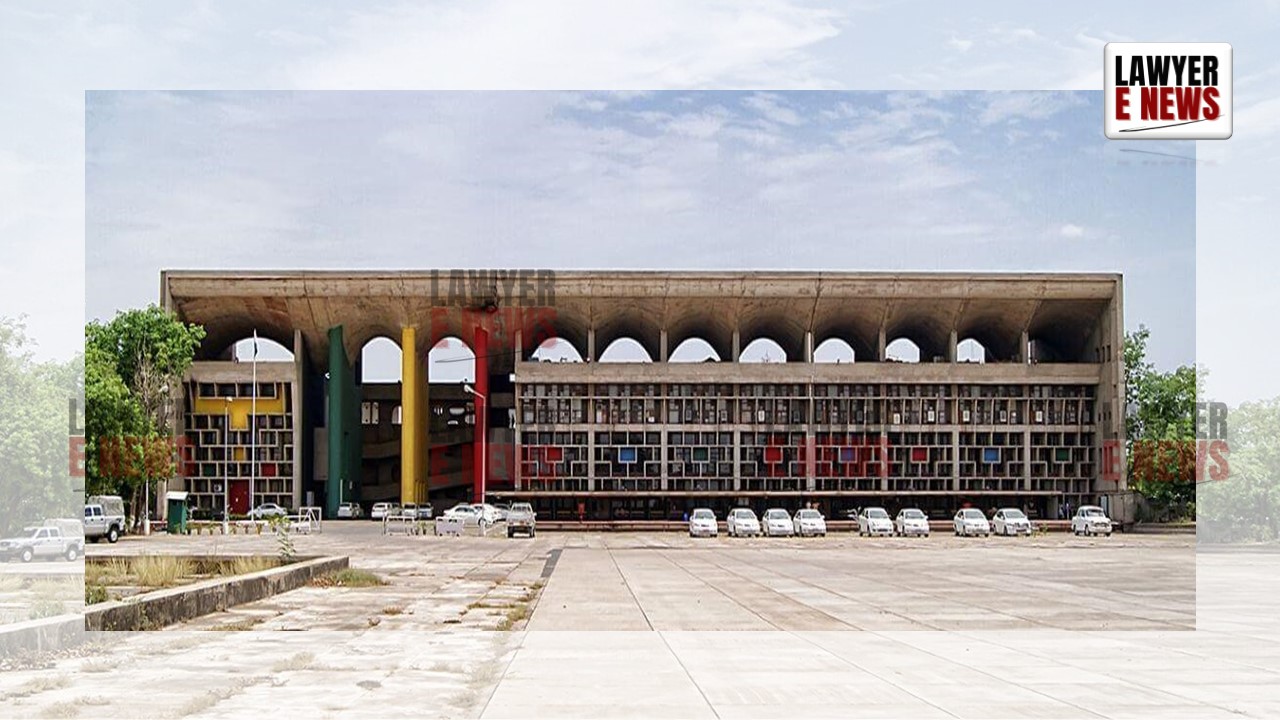-
by sayum
16 February 2026 6:35 AM



The Punjab & Haryana High Court in Ashish Kakkar v. Union Territory of Chandigarh on January 30, 2025, dismissed a petition seeking to quash the petitioner’s arrest and remand order, holding that the arrest was lawful and complied with constitutional and statutory safeguards. The Court ruled that when an arrest is justified under Section 41(1) of the Code of Criminal Procedure (Cr.P.C.), the issuance of a notice under Section 41-A Cr.P.C. is not mandatory.
The petitioner had challenged his arrest on grounds of procedural violations under Article 22 of the Constitution of India, Section 50 Cr.P.C., and the Supreme Court's guidelines in Arnesh Kumar v. State of Bihar, (2014) 8 SCC 273. However, the High Court found no violation, stating, "when the Investigating Agency required the arrest of a person under Section 41 Cr.P.C., then there was no occasion for invoking the provisions of Section 41-A Cr.P.C."
The case arose from an FIR registered under Sections 384 (extortion), 420 (cheating), 468 (forgery), 471 (using forged documents as genuine), 509 (insulting modesty of a woman), and 120-B (criminal conspiracy) of the Indian Penal Code, 1860 (IPC). The complainant, Arvind Kumar, alleged that after clicking on a fraudulent loan application link, he was blackmailed with morphed obscene photographs and coerced into making payments.
During the investigation, co-accused Manoj Rathore was arrested on December 29, 2024, and disclosed the involvement of Puneet Kumar and Ashish Kakkar (petitioner). Based on this disclosure, the petitioner was arrested on December 30, 2024, from Hotel Jaypee Siddharth, New Delhi. He was produced before the Judicial Magistrate, Chandigarh, who remanded him to three days of police custody.
The petitioner contended that his arrest was illegal as the maximum punishment for the offenses was seven years, and therefore, issuance of a notice under Section 41-A Cr.P.C. was mandatory. He further argued that he was not informed of the grounds of arrest as required under Article 22 of the Constitution and Section 50 Cr.P.C. The petitioner also claimed that the remand order was passed mechanically without judicial application of mind and that he was denied legal assistance at the time of arrest.
Rejecting these arguments, the Court stated, "Section 41(1)(b) Cr.P.C. allows arrest without a warrant if the police officer believes it is necessary for proper investigation, to prevent further offenses, or to ensure the accused’s presence in court. The police recorded valid reasons for the petitioner’s arrest, including his attempts to evade the investigation by frequently changing locations and refusing to accept notices."
The Court further observed, "Where the police officer is satisfied that such arrest is necessary to prevent such person from committing any further offense; for proper investigation of the offense; to prevent such person from causing the evidence of the offense to disappear or tampering with such evidence in any manner; to prevent such person from making any inducement, threat or promise to any person acquainted with the facts of the case so as to dissuade him from disclosing such facts to the Court or to the Investigating Officer, arrest can be made under Section 41(1) Cr.P.C. without issuing a notice under Section 41-A."
Addressing the petitioner’s claim that he was not informed of the grounds of arrest, the Court stated, "The arrest memo, duly signed by the petitioner, mentioned that he was arrested based on the disclosure statements of co-accused. His wife was informed of the arrest, fulfilling constitutional and statutory requirements." The Court also found that the petitioner’s argument regarding denial of legal assistance was unfounded, as he was later represented by counsel in subsequent remand hearings.
The Court relied on Arnesh Kumar v. State of Bihar and reiterated that while unnecessary arrests must be avoided, an investigating officer can arrest without a warrant if the conditions under Section 41(1) are met. It also cited Prabir Purkayastha v. State (NCT of Delhi), (2024) 8 SCC 254, which distinguished between "reasons for arrest" and "grounds of arrest," noting that the petitioner had been adequately informed of the latter.
Referring to Arnab Goswami v. State of Maharashtra, (2021) 2 SCC 427, the Court emphasized that judicial review of arrests and remands should not interfere with legitimate investigations unless there is a blatant violation of fundamental rights. It held, "Courts should be alive to both ends of the spectrum – the need to ensure the proper enforcement of criminal law on the one hand and the need, on the other, of ensuring that the law does not become a ruse for targeted harassment."
Dismissing the petition, the Punjab & Haryana High Court held, "the petitioner’s arrest complied with constitutional and statutory mandates. Section 41-A Cr.P.C. was not applicable, as the police had valid reasons for arrest under Section 41(1). The petitioner’s claim of denial of legal assistance was unfounded, as he was later represented by counsel in subsequent remand hearings." The Court found no procedural illegality in the arrest or remand orders and declined to interfere in the investigation.
While reaffirming the need for compliance with procedural safeguards in arrests, the ruling clarifies that Section 41-A Cr.P.C. does not apply when the police have justified reasons for arrest under Section 41(1). The judgment strengthens law enforcement’s ability to act decisively against cyber and financial crimes while ensuring adherence to constitutional principles.
Date of Decision: January 30, 2025
